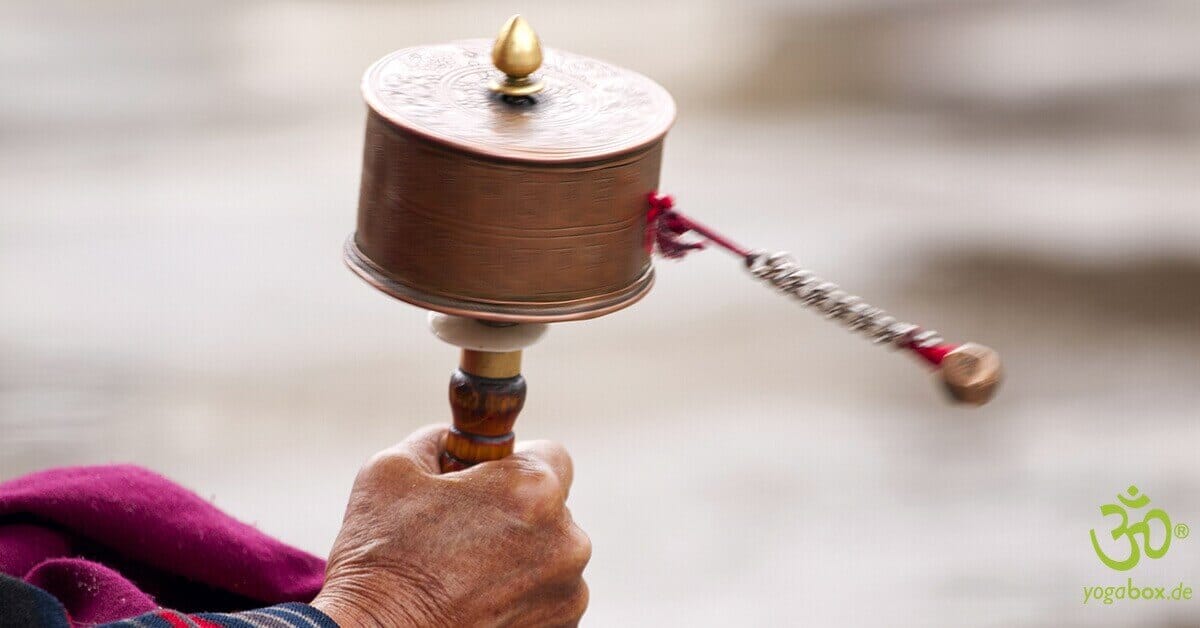
Kriya Yoga – The Path to Self-Realization
by Nick on May 01 2022
 Kriya Yoga – The Path to Self-Realization
For many yoga beginners and even advanced practitioners, it's difficult to grasp the various yoga styles and how they differ. Hatha, Kundalini , Ashtanga, Vinyasa? Sweating with Bikram Yoga? Or modern, Western versions like Power Yoga? We'll shed some light on the subject and explain what Kriya Yoga is and where it fits among the various styles.
Kriya Yoga – The Path to Self-Realization
For many yoga beginners and even advanced practitioners, it's difficult to grasp the various yoga styles and how they differ. Hatha, Kundalini , Ashtanga, Vinyasa? Sweating with Bikram Yoga? Or modern, Western versions like Power Yoga? We'll shed some light on the subject and explain what Kriya Yoga is and where it fits among the various styles.
What is Kriya Yoga?
Kriya Yoga is also called "active yoga" or "yoga of action." The name is derived from kri (Sanskrit: to act). The goal of Kriya Yoga is to develop the mind, soul, and body equally. Those who practice Kriya Yoga regularly are said to achieve balance and deep inner peace. The history of Kriya Yoga dates back to the Yoga Sutra, the classic guide to yoga. The Yoga Sutra was written by the Indian scholar Patanjali, who is considered the "Father of Yoga." This makes Kriya Yoga one of the most ancient and traditional forms of yoga. The yoga master, philosopher, and writer Paramahamsa Yogananda introduced this path to the Western world starting in the 1920s.Components of Kriya Yoga
Kriya Yoga is based on Raja Yoga, one of the classical yoga paths that focuses on mind control. The central technique in Kriya Yoga is breathing exercises (pranayama) , which are intended to unite body and mind. The focus of Kriya Yoga is on three points:- Tapas : Tapas stands for discipline, willpower, perseverance, the "inner fire." You always need this energy if you want to achieve success. In Kriya Yoga, tapas refers to exercises and meditations that stoke this "inner fire" and help the yoga student master daily life with an awareness of their Higher Self.
- Svadhyaya : This term refers to self-study. One's own thoughts and actions should be observed, critically examined, and reflected upon. Know yourself. Recognize your abilities and talents, but also your weaknesses. Svadhyaya also includes the study of ancient texts. This study can encompass all kinds of philosophical and religious works, from the Bible and the Yoga Sutras to modern philosophical texts.
- Ishvara Pranidhana : The third important aspect of Kriya Yoga is devotion to God (Prandihana: devotion, Ishvara: God). The goal is a state of total surrender to God's will. In this spiritual practice, the practitioner ultimately aims to merge completely into God and give up their own self. Suffering, grief, and even joy are treated as gifts from God, to which one does not cling.







